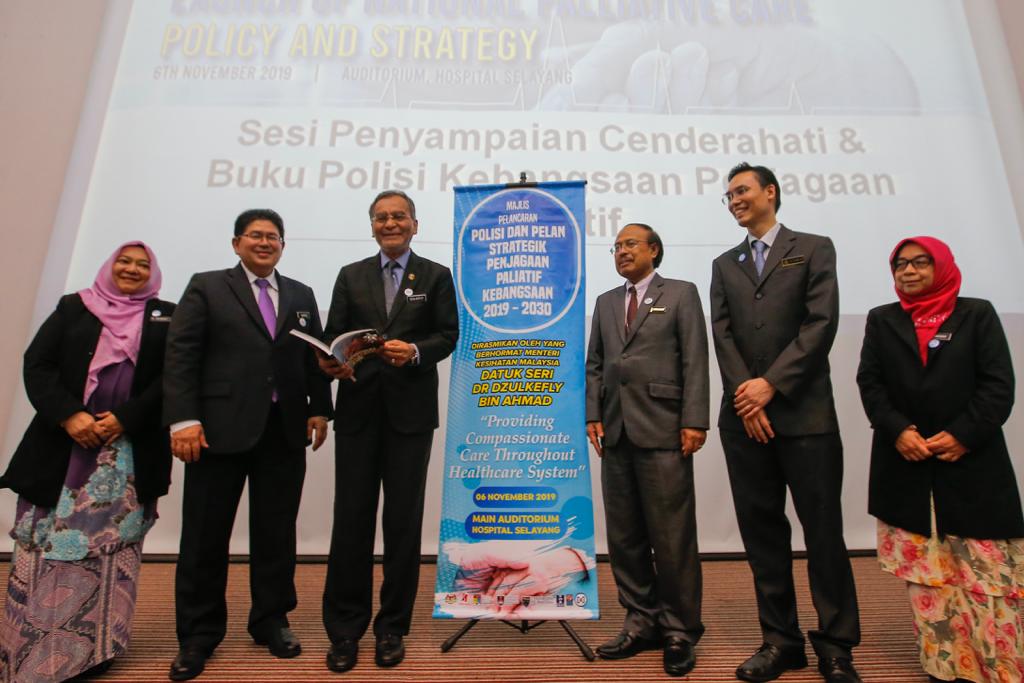KUALA LUMPUR, Nov 6 – The Ministry of Health (MOH) plans to expand palliative care centres to Melaka, Negri Sembilan, Sabah, and Sarawak from existing facilities in Selangor, Perak, Kedah, and Penang.
Currently, Malaysia only has 21 trained palliative medicine specialists, 10 times lower than the required number of 218 for the population. Only seven public hospitals have specialist palliative care services, of which only four have in-patient palliative care units, according to MOH.
“We want to extend palliative care centres to Melaka, Negri Sembilan, Sabah, and Sarawak in the next one and a half years,” Dr Richard Lim, national head of service for palliative medicine at MOH, told the press today after the launch of the National Palliative Care Policy and Strategic Plan 2019-3020 at Hospital Selayang here.
Health Minister Dzulkefly Ahmad said MOH would provide estimates next week on the funding allocations needed to implement the country’s new palliative care policy.
“We want palliative care not just in our health facilities, but we want to bring palliative care centres to right in the home; we need to train caregivers,” Dzulkefly told reporters.
According to Dr Lim, palliative care needs in Malaysia are projected to increase from 71,675 people in 2004 to 144,454 this year, and to 239,713 in 2030.
However, less than 10 per cent of the need is currently being met.
The National Palliative Care Policy and Strategic Plan comprises three policy areas: equity (providing access to compassionate, dignified and impartial care to all people with life-limiting illness); sustainability (continuous growth and development to meet the growing needs of Malaysia through education, adequate human resource, and funding); and quality (providing palliative care to high clinical standards in accordance with ethical principles).
The seven strategies of the national palliative care policy are to develop palliative care as part of universal health coverage, and to identify everyone who needs palliative care and recognise their needs.
Everyone in need of palliative care must be able to access the care and medications they require, a network for the continuity of care must be established, palliative care providers must be educated, community participation must be included in palliative care provision and promotion, and standards of care must be established based on best evidence and ethical principles.








